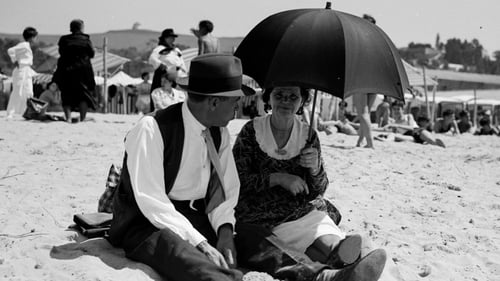
Producer
Nos anos 1950, Victor Palla e Manuel Costa, dois amigos arquitectos, retratam a cidade de Lisboa em mais de 6000 fotografias. Estas são publicadas num livro epónimo circulado em fascículos, em pleno regime fascista, mas esquecido durante o meio século seguinte. Depois das suas mortes, torna-se o livro de fotografias com maior projecção internacional de sempre e este filme é uma homenagem ao trabalho destas duas figuras, que faz agora 100 anos.

Director
Nos anos 1950, Victor Palla e Manuel Costa, dois amigos arquitectos, retratam a cidade de Lisboa em mais de 6000 fotografias. Estas são publicadas num livro epónimo circulado em fascículos, em pleno regime fascista, mas esquecido durante o meio século seguinte. Depois das suas mortes, torna-se o livro de fotografias com maior projecção internacional de sempre e este filme é uma homenagem ao trabalho destas duas figuras, que faz agora 100 anos.

Director
Portuguese people are connected to the sea. With much of its border bathed by the Atlantic Ocean, it will not be surprising that comes from here a huge slice of our income. The fish canning industry, one of the most emblematic and old Portuguese industries, was again very fashionable, partly because of the musician and singer, founder of the mythical Heróis do Mar and the LX-90, Rui Pregal da Cunha, that opened a restaurant in honour of the national canning industry and fado - Can the Can. Now, Pregal da Cunha, who has always liked to position himself behind the camera, tells us this story. Part of the History of Portugal.

Director
In a high-security prison in northern Portugal, a fine-cut, poetic portrait of Ernesto and Gaspard, who are waiting for better days.

Producer
Portugal viveu a Segunda Guerra Mundial dentro de um mundo de fantasia. A propaganda criou nos portugueses um nível de irrealidade fantasista em que a realidade violenta e terrível da guerra era uma coisa muito longínqua e de outro mundo.

Producer
Crime Blue Abyss Physical Remorse is inspired by the life and works of Amadeo de Souza-Cardoso. This controversial 20th century painter defied the world avant-garde of his time: “I don’t follow schools. I am an impressionist, cubist, futurist, abstractionist. A melting pot. The real tradition is not to try and relive the past – which is impossible to achieve – but rather something that sets up a follow-through, as happens with parents and children. A child and his father are never alike.” The film follows Amadeo’s motto. It crosses pictorial fiction – suggested by the emblematic picture “The Procession”, painted in Paris in 1913 – with Portuguese contemporary reality.

Director
Biography of the Portuguese sculptor Rui Chafes, winner of the Pessoa Award in 2016





